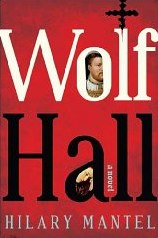Wolf Hall
Thomas Cromwell rose from nowhere to counsel the king He rose through Wolsey’s household — Wolsey himself was a butcher’s boy — and became Henry VIII’s chief advisor and Thomas More’s rival. Mantel charts his rise, and subtly argues that Cromwell’s character holds a key to the centrality of tolerant intelligence in British political culture.
This is, in some ways, a strange choice for the Booker Prize. The present volume is clearly a prologue, ending suddenly as Cromwell turns (for the first time) to Wolf Hall, the residence of the Seymours, and the second volume might well transform the first. Further, the opening chapter on Cromwell’s boyish struggles with his father strikes me as clumsy, providing an invented source to explain invented character notes. McEwan did this more neatly in Chesil Beach by leaving childhood events in murky offstage shadows. We can never know what really happened in childhood, and in any case what happened isn’t what matters: this child is beaten, raped, abandoned and grows up fine, while an unkind word leaves another child with a lifetime of therapy. But the rest of Wolf Hall is very fine indeed:
Thomas More comes to Austin Friars. He refuses food, he refuses drink, though he looks in need of both.
The cardinal would not have taken no for an answer. He would have made him sit down and eat syllabub. Or, if it were the season, given him a large plate of strawberries and a very small spoon.
I envy the fierce, deniable malice in that plate of strawberries.
